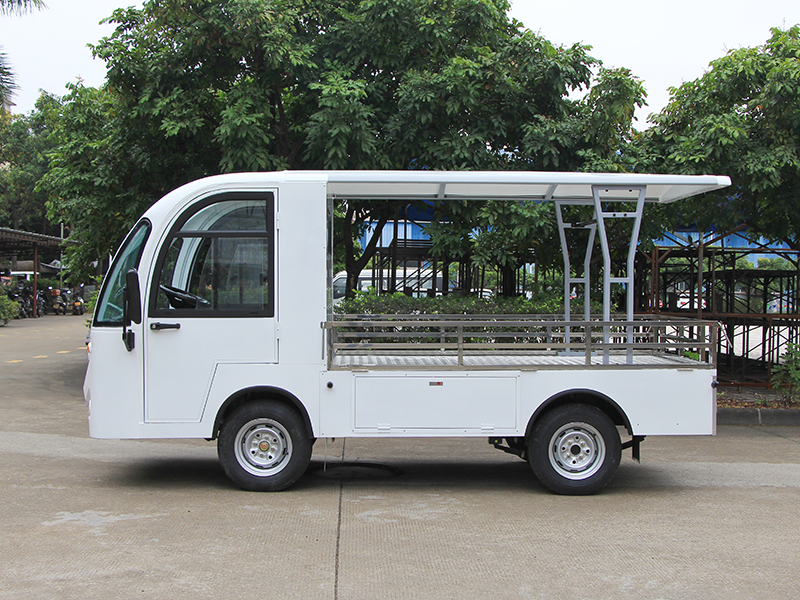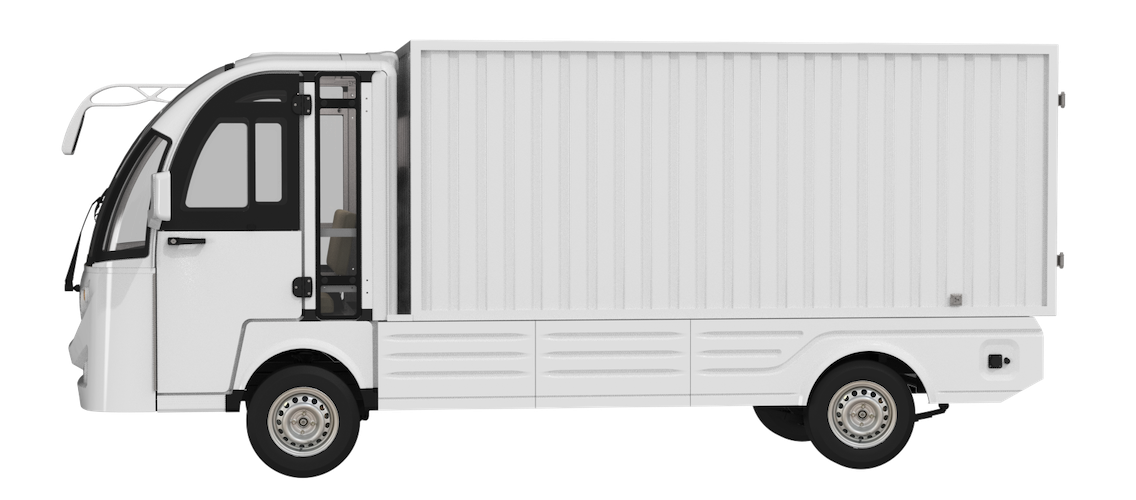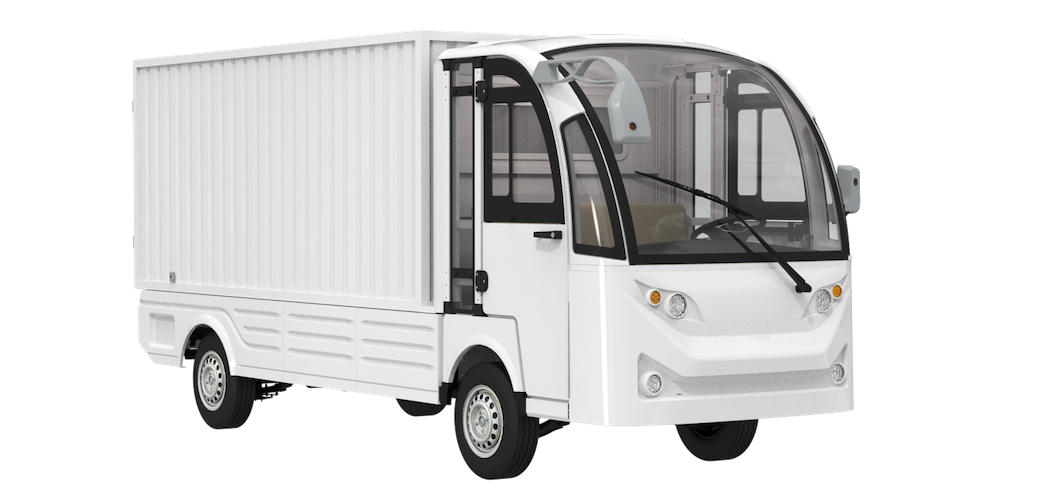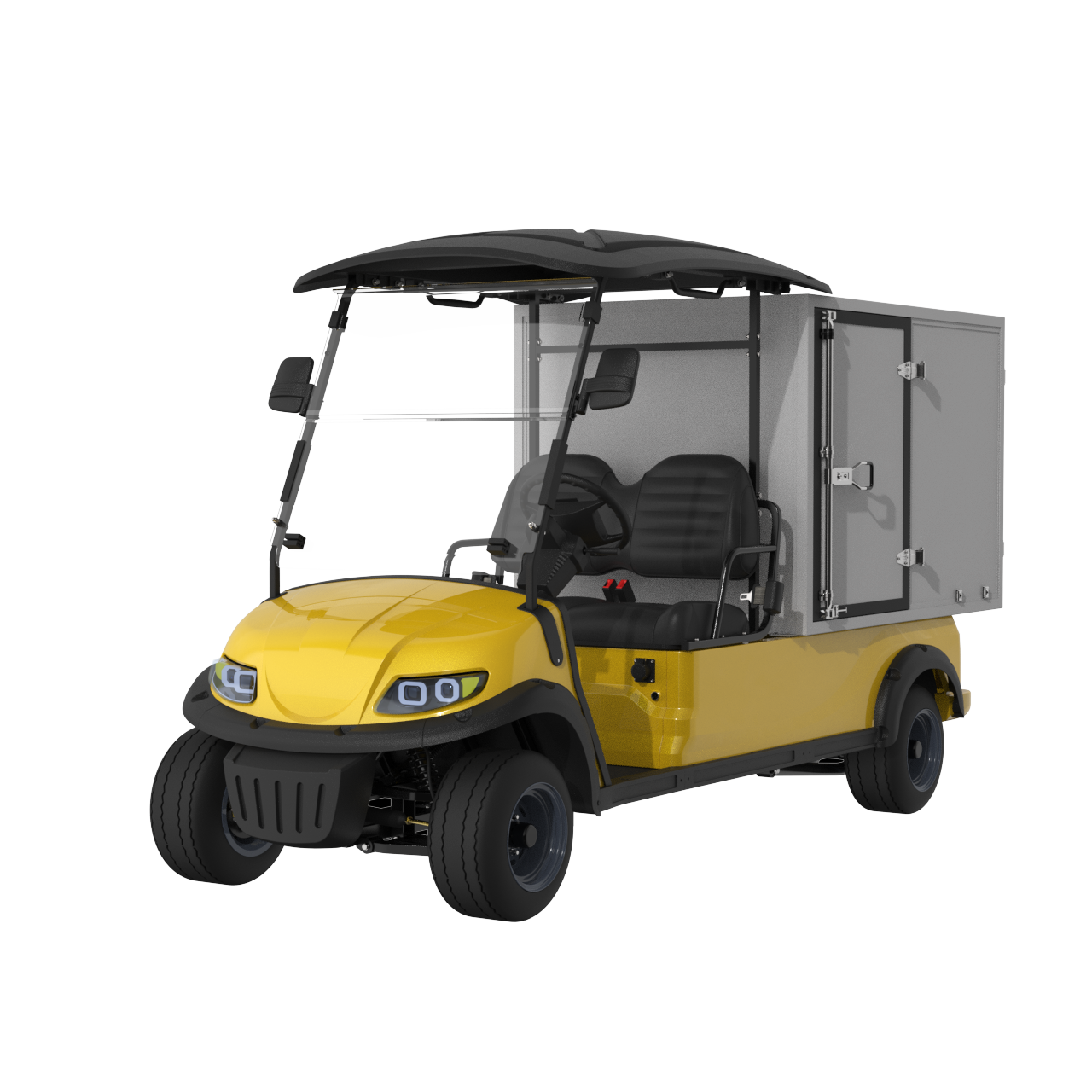Content Menu
● The Market Landscape for Electric Cargo Vehicles in Indonesia
● Key Benefits of Choosing Electric Cargo Vehicles
● Leading Electric Cargo Vehicle Manufacturers and Suppliers in Indonesia
>> 1. PT Mobil Anak Bangsa (MAB)
>> 2. GESITS
>> 3. Selis
>> 4. Viar Motor Indonesia
>> 5. DFSK Indonesia
>> 6. Guangzhou Langqing Electric Car Co., Ltd (Serving Indonesia)
>> 7. Electro Indonesia
>> 8. Wuling Motors Indonesia
● Innovations and Trends in Indonesia's Electric Cargo Vehicle Industry
>> Adoption of Smart Fleet Management
>> Battery Technology Advancements
>> OEM Services for International Partners
● Customer Success Stories
● Challenges and Opportunities in the Indonesian Market
>> Growing Pains
>> Strategic Opportunities
● Conclusion
● FAQ
>> 1. What advantages do electric cargo vehicles offer over traditional vehicles?
>> 2. Can Indonesian manufacturers deliver customized electric cargo solutions?
>> 3. What types of electric cargo vehicles are available from Indonesian suppliers?
>> 4. How are battery advancements impacting Indonesia's electric cargo vehicle market?
>> 5. Is there support for international brands seeking OEM suppliers in Indonesia?
Indonesia's rapidly growing logistics, e-commerce, and urban delivery markets have ignited an urgent demand for innovative, eco-friendly solutions. Electric cargo vehicles have emerged as a transformative force, revolutionizing how goods are transported while significantly reducing carbon footprints. This article delves deep into the leading electric cargo vehicle manufacturers and suppliers in Indonesia, highlighting their offerings, cutting-edge technology, and competitive advantages. Whether you're a brand owner, wholesaler, or production partner scouting for OEM opportunities, this comprehensive guide will help you navigate Indonesia's dynamic electric cargo vehicle landscape.

The Market Landscape for Electric Cargo Vehicles in Indonesia
Indonesia, with its sprawling archipelago and booming metropolises, faces pressing challenges: urban congestion, significant air pollution, and high delivery demands. Electric cargo vehicles are the perfect answer—offering sustainable, reliable, and cost-effective last-mile logistics. As government incentives and environmental awareness grow, many manufacturers and suppliers are strategically investing in and expanding their presence in Indonesia's market.
The Indonesian government has introduced a range of policies to foster electric mobility adoption, including tax reductions, subsidies, and infrastructure development support. Cities like Jakarta and Surabaya have begun rolling out electric vehicle zones, providing further impetus for the electric cargo vehicle segment. These regulatory measures not only encourage domestic demand but also attract foreign direct investment, making Indonesia a strategic hub for regional electric vehicle production and distribution.
Key Benefits of Choosing Electric Cargo Vehicles
Electric cargo vehicles present numerous advantages that appeal to businesses and governments alike. First and foremost is sustainability. By operating on electricity, these vehicles drastically reduce carbon emissions and noise pollution, contributing to cleaner urban environments. Lower operational costs are another major benefit, owing to cheaper energy consumption compared to diesel or petrol and reduced maintenance requirements thanks to fewer moving parts.
Additionally, government incentives and policies bolster adoption. Various tax breaks, reduced import duties on electric vehicle components, and grants for fleet electrification are accessible to businesses that transition to electric cargo vehicles. The versatility of these vehicles makes them suitable for diverse applications — from food delivery in crowded urban centers to goods transport across sprawling industrial estates and last-mile logistics in congested neighborhoods. Their design flexibility allows for customization, including modular cargo compartments, refrigeration units, or integrated telematics.
Leading Electric Cargo Vehicle Manufacturers and Suppliers in Indonesia
1. PT Mobil Anak Bangsa (MAB)
PT Mobil Anak Bangsa is a trailblazer in Indonesia's electric vehicle manufacturing sector, committed to producing robust and efficient cargo vans, mini trucks, and e-buses focused on cargo delivery applications. Their vehicles feature extended battery ranges, advanced onboard safety systems, and have competitive pricing tailored for both urban and rural users. MAB emphasizes customer-centric solutions, offering modular cargo platforms compatible with various industry needs.
They also provide comprehensive OEM services, including full vehicle customization, branding, and after-sales service packages tailored to international clients. Their commitment to innovation and local production capability has established them as a trusted partner in Indonesia's green logistics initiatives.
2. GESITS
GESITS is one of Indonesia's best-known electric mobility companies, primarily manufacturing electric motorcycles and scooters well-suited for urban cargo delivery. These lightweight and agile two-wheelers are optimized for navigating dense city traffic, providing cost-effective last-mile options for small parcel and food delivery services.
Equipped with IoT-enabled fleet management systems, GESITS vehicles support real-time tracking, route optimization, and predictive maintenance, increasing operational efficiency. The company also focuses on fast-charging solutions and a broad service network, ensuring reliability for commercial users.
3. Selis
Selis offers a highly diversified portfolio with three and four-wheeled electric cargo vehicles designed to meet varying urban delivery requirements. Known for their durability in Indonesia's often challenging road conditions, Selis vehicles boast an extra-large cargo box design and energy-efficient motors that balance power and range.
Selis supports OEM and ODM orders, providing tailored design and branding options to meet specific client needs. Their focus on building reliable, adaptable vehicles combined with robust after-sales service makes them a popular choice for local and international brands seeking cost-efficient electric cargo solutions.
4. Viar Motor Indonesia
Viar has established itself as a key player in the electric light vehicle segment, supplying a range of electric three-wheelers and small utility trucks favored by small and medium-sized enterprises (SMEs) and logistics firms. Their vehicles offer high payload capacities, modular cargo bodies, and reputable warranty terms.
The company's expertise in OEM production includes flexible customization and private labeling, making it a preferred supplier for international partners aiming to penetrate Indonesian and Southeast Asian markets. Viar actively invests in technology upgrades, particularly battery management systems and electric drive controls.
5. DFSK Indonesia
DFSK, part of a global automotive group, brings extensive experience and cutting-edge technological solutions to Indonesia's electric cargo vehicle market. Their product lineup includes electric minivans, light trucks, and multipurpose cargo vehicles equipped with advanced lithium-ion battery technology and sophisticated driver-assist systems.
These features, such as regenerative braking and smart distribution software, improve efficiency and vehicle range. DFSK's widespread network of service centers and spare part suppliers ensures easy maintenance and operational continuity for fleet operators.

6. Guangzhou Langqing Electric Car Co., Ltd (Serving Indonesia)
Guangzhou Langqing Electric Car Co., Ltd serves as a trusted OEM partner for the Indonesian market, leveraging decades of manufacturing expertise delivering high-quality, customized electric cargo vehicles. Their product range includes golf carts, multi-passenger shuttles, and specialized electric delivery vehicles, making them a versatile supplier for various industries.
The company excels in offering end-to-end logistics solutions, from vehicle design and production to after-sales support. They collaborate closely with Indonesian brands, wholesalers, and logistics players, tailoring their services to meet evolving market demands. Langqing's focus on sustainability and reliability has positioned them as a key intermediary supporting the expansion of electric cargo fleets in Indonesia.
7. Electro Indonesia
Electro Indonesia specializes in the innovative conversion of conventional vehicles into electric cargo carriers, offering turnkey solutions that include vehicle retrofitting, fleet electrification consultancy, and aftermarket support. Their approach provides businesses the opportunity to upgrade existing logistics assets to electric without full vehicle replacement.
With rapid prototyping capabilities and strong local supply chain integration, Electro Indonesia supports rapid deployment of electric fleets while maintaining cost efficiency. Their post-sale services ensure smooth operation, making them a viable partner in Indonesia's transition toward electrified logistics.
8. Wuling Motors Indonesia
Wuling Motors is a global automotive manufacturer with a strong presence in Indonesia's EV market. Their electric mini trucks and small vans are valued for long battery life, robust build quality, and advanced safety systems. Wuling leverages its extensive R&D infrastructure to deliver vehicles that meet both consumer and commercial demands.
In addition to high-performance batteries, Wuling electric cargo vehicles are supported by a broad dealer and service network spanning Indonesia, enabling easy access to maintenance and parts. Their competitive pricing and reliability have gained favor with delivery companies seeking affordable electric fleet alternatives.
Innovations and Trends in Indonesia's Electric Cargo Vehicle Industry
Adoption of Smart Fleet Management
One of the most significant trends in Indonesia's electric cargo sector is the integration of smart fleet management systems. Leading manufacturers and suppliers embed telematics and IoT technologies in their vehicles to provide real-time tracking, route optimization, predictive maintenance, and driver behavior monitoring.
Such systems enhance operational efficiency by reducing downtime and fuel consumption, increasing cargo delivery speed, and improving safety. Fleet operators can dynamically manage their assets across Indonesia's challenging urban and rural routes, providing better service to end customers and reducing total cost of ownership.
Battery Technology Advancements
Battery technology is the backbone of the electric cargo vehicle revolution. Indonesia's suppliers benefit from partnerships with international battery producers, enabling the deployment of lithium-ion and other high-capacity battery chemistries offering rapid charging, longer life cycles, and improved energy density.
These advances translate into longer vehicle ranges per charge, critical for Indonesia's archipelagic geography where delivery routes may extend across islands or remote locations. Additionally, modular battery designs allow quick swapping or upgrades, enhancing vehicle uptime and fleet scalability.
OEM Services for International Partners
Indonesia's electric cargo vehicle ecosystem presents rich opportunities for OEM partnerships. Many manufacturers offer comprehensive OEM and ODM services tailored for international brands, including:
- Full vehicle customization for specific cargo needs or branding.
- Technical licensing and design collaboration.
- After-sales warranty management and spare parts distribution.
- Integrated logistics and fleet deployment support.
China-based factories like Guangzhou Langqing play an instrumental role by providing affordable, world-class manufacturing capabilities that complement local Indonesian brands and suppliers' offerings.
Customer Success Stories
The positive impact of electric cargo vehicles in Indonesia is already evident through multiple success stories:
- A Jakarta-based delivery startup significantly expanded its operational reach while reducing emissions by 40% after transitioning to electric cargo vehicles procured from domestic manufacturers. This enhanced not only their brand reputation but also lowered running costs.
- An Indonesian e-grocery platform partnered with an OEM supplier to design a custom electric fleet tailored to their urban delivery challenges. This collaboration enabled reliable same-day delivery despite Jakarta's notorious traffic congestion.
- Several SMEs in Bali converted their conventional cargo tricycles to electric variants through retrofitting services by Electro Indonesia, cutting fuel expenses and positioning themselves as green-conscious businesses appealing to eco-aware customers.
These stories illustrate the tangible business value and environmental benefits offered by adopting electric cargo vehicles within Indonesia's diverse logistics sectors.
Challenges and Opportunities in the Indonesian Market
Growing Pains
Despite promising growth, the electric cargo vehicle market in Indonesia faces several challenges. Infrastructure limitations, such as insufficient charging stations and grid instability in remote regions, hamper broader adoption. Public perception and awareness of electric vehicles remain in formative stages, necessitating educational campaigns.
The initial capital investment for electric cargo vehicles remains higher than conventional counterparts, posing affordability barriers, particularly for small businesses. However, as battery costs continue to decline and government support intensifies, these concerns are steadily diminishing.
Strategic Opportunities
Conversely, mounting e-commerce demand and stringent government mandates for green logistics generate significant opportunities:
- Substantial market growth potential for overseas OEM suppliers cooperating with local partners.
- Increasing demand for modular and customized electric cargo solutions designed for Indonesia's varied geographic and economic conditions.
- Opportunities for technology localization, innovation in battery swapping or mobile charging infrastructure, and joint ventures.
The growing ecosystem encourages manufacturers and suppliers to innovate continuously and collaborate, ensuring Indonesia's position as a leading sustainable logistics hub in Southeast Asia.
Conclusion
Indonesia's electric cargo vehicle industry stands at an exciting juncture marked by rapid growth and dynamic innovation. Leading manufacturers and suppliers—ranging from pioneering local firms to global OEM factories—are developing sophisticated, cost-effective electric cargo solutions to meet the country's rising logistics demands.
With robust government incentives, advancing battery technologies, and the integration of smart fleet management systems, electric cargo vehicles offer transformative benefits: environmentally friendly operations, lower costs, and enhanced delivery efficiency. OEM partnerships and tailored vehicle services further empower local and international players to capitalize on this burgeoning market.
As Indonesia continues to urbanize and prioritize sustainability, adopting electric cargo vehicles will be a cornerstone for logistics companies, retailers, and production brands aiming to build competitive, green supply chains. Now is the time to engage with Indonesia's evolving electric cargo vehicle ecosystem and harness its immense potential for sustainable business growth.

FAQ
1. What advantages do electric cargo vehicles offer over traditional vehicles?
Electric cargo vehicles offer lower operating costs due to reduced fuel and maintenance needs, zero tailpipe emissions contributing to cleaner air, quieter operation benefiting urban environments, and access to supportive government policies such as tax incentives.
2. Can Indonesian manufacturers deliver customized electric cargo solutions?
Yes. Many manufacturers in Indonesia provide full OEM and ODM services, enabling customized vehicle design, branding, and tailored after-sales support. This flexibility meets various industry-specific requirements from different international and domestic clients.
3. What types of electric cargo vehicles are available from Indonesian suppliers?
Indonesian suppliers offer a wide range of vehicles, including electric two-wheel scooters for last-mile delivery, three-wheelers and tricycles for small to medium cargo, four-wheel mini trucks and delivery vans, and multipurpose electric utility vehicles.
4. How are battery advancements impacting Indonesia's electric cargo vehicle market?
Advances in lithium-ion and fast-charging battery technology are significantly improving vehicle range and reducing charging times. This makes electric cargo vehicles practical for more extensive delivery routes and helps overcome geographic challenges within Indonesia's archipelago.
5. Is there support for international brands seeking OEM suppliers in Indonesia?
Absolutely. Several Indonesian and international manufacturers specialize in OEM activities, offering private labeling, technical licensing, and comprehensive logistics solutions designed to help international brands establish or expand their presence in Indonesia and the Southeast Asian region.




















































